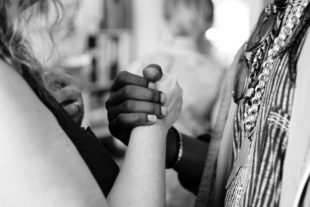Finding a Safe Space in Counseling
Christian Counselor Spokane
Finding a port to shelter in during life’s storms is something we all need. At one point or another, we may find ourselves beaten down by hardships of various kinds, and we need to find a safe space where we can work through our pain.
 Typically, our friends, family, spiritual community, and the people around us that we love, and trust are the first port of call in such times. However, sometimes your issues or questions have to do with those very people, or for some other reason, you don’t feel comfortable bringing things up within those relationship circles.
Typically, our friends, family, spiritual community, and the people around us that we love, and trust are the first port of call in such times. However, sometimes your issues or questions have to do with those very people, or for some other reason, you don’t feel comfortable bringing things up within those relationship circles.
When you find yourself in this situation where you have things on your mind and heart that you need to process, but there’s no capacity in your relationship circles to handle it, or you’d rather not bring it up in that context, a viable option is counseling with a trained and licensed counselor. Many people have experienced the relief of counseling as a safe space in which to focus on their issues and to address their needs.
Do we need a safe space?
The term “safe space” has gained purchase in the last few years, and for good reason. We’ll speak a bit later about what makes safe spaces “safe,” but the reality is that for a long while people either simply had to suffer in silence or disclose what they were feeling in less-than-hospitable settings in which they didn’t feel comfortable sharing their thoughts and feelings, or they experienced negative responses to what they shared that burned them and caused further harm.
So, do we need safe spaces? Yes, we do, and that includes the counseling scenario as well. Only when we speak openly and honestly about what we think and feel will progress be made in counseling.
 When you unpack your thoughts and feelings in all their complexity and messiness, examining them in the light of day helps to get a handle on things. If therapies such as Cognitive Behavioral Therapy (CBT) address your present thought patterns, behavior, and past experiences that shaped how you are now, it can only be effective if you freely and honestly share what you’ve been through, and how you believe it comes to the fore. It’s only with honest conversation and engagement that counseling can bear fruit. We need to feel safe and secure.
When you unpack your thoughts and feelings in all their complexity and messiness, examining them in the light of day helps to get a handle on things. If therapies such as Cognitive Behavioral Therapy (CBT) address your present thought patterns, behavior, and past experiences that shaped how you are now, it can only be effective if you freely and honestly share what you’ve been through, and how you believe it comes to the fore. It’s only with honest conversation and engagement that counseling can bear fruit. We need to feel safe and secure.
Why is the counseling space a safe space?
Feeling safe and secure makes the counseling space primed to be effective. To understand some of how this happens, understanding what makes the space “safe” is helpful, if only by illustrating its opposite. Part of what makes some spaces “unsafe” are the power dynamics at play. For example, it’s hard to speak openly when you’re afraid of losing the relationship, or of being fired.
Speaking plainly to your boss about some of the things they do or say comes with the risk that they may be offended and take it out on you in some way. If your boss is the type of person to take things personally, or they aren’t very well regulated emotionally, that can make not only for a challenging work environment, but an unsafe one to share your emotional vulnerabilities.
In a relationship with someone, be it a spiritual leader, spouse, friend, colleague, or relative, there may not be a similar power dynamic that makes things awkward, but it can feel unsafe because of how people can react to what you share about yourself.
If people have a high opinion of you, sharing areas of weakness with them has the potential of lowering your esteem in their eyes and changing how they perceive and/or interact with you. You can feel that being open with certain people is unsafe because it may put the relationship in jeopardy.
In other situations, because people aren’t trained, they simply don’t know how to deal with or process what you tell them. This may speak not so much to how some spaces are unsafe, but how sharing with those close to you can burden them.
 Lastly, in other cases, relational spaces can be unsafe because the people may not hold what they know in confidence as they should. Between deliberately spilling the tea, to mistakenly blurting something out when they shouldn’t, what was meant to be a private matter can become public news. If you’ve experienced this before, you may know the pain of sharing something in confidence with someone, only to find that other people now know what you intended to be kept private.
Lastly, in other cases, relational spaces can be unsafe because the people may not hold what they know in confidence as they should. Between deliberately spilling the tea, to mistakenly blurting something out when they shouldn’t, what was meant to be a private matter can become public news. If you’ve experienced this before, you may know the pain of sharing something in confidence with someone, only to find that other people now know what you intended to be kept private.
What makes the counseling space safe lies primarily in the practice of counseling and the people who we go to that create the atmosphere around it. Not only are there regulations and laws that govern how counselors and therapists ought to relate to their clients and deal with the information they are privy to, but it is also part of their training, and they can only keep doing their job if they are complying with the law by maintaining confidentiality and other elements of their professional code.
Additionally, the counselor or therapist you go to is typically someone with whom you have no relationship except the professional one created for the therapy. This means that the awkwardness of explaining things to someone who’s in your life is absent from the equation, as is their inability to process what you share.
Because they spend thousands of hours getting trained and honing their craft, they know what they’re doing, and they know how to address whatever issue you bring to them. They’re not going to be freaked out by whatever you tell them.
Also, because you are not in a personal relationship with your counselor, and there is no power dynamic at play as in other situations, you can feel free to share what’s going on without fear of retribution or loss of the relationship. That all goes a long way toward creating the formal structures of a safe space where you can be yourself and share your concerns openly.
A trained and licensed counselor/therapist
While the formal structure of a safe space is created by the laws and professional setup of the situation, that’s not all that goes into the counseling space being a safe one. The other key ingredient that we’ve spoken to a little already, is people we go to for therapy. Yes, they receive many hours of training that mold them into the kinds of people who are good listeners and are skilled at discerning the patterns in our thoughts and behaviors.
 This makes them the right kinds of people to whom we can bring our questions, concerns, issues, and so much more because they are trained for it. They don’t get fazed easily or at all, they understand the dynamics of human behavior and relationships, not only from a theoretical perspective but also in how these things work themselves out into our everyday lives.
This makes them the right kinds of people to whom we can bring our questions, concerns, issues, and so much more because they are trained for it. They don’t get fazed easily or at all, they understand the dynamics of human behavior and relationships, not only from a theoretical perspective but also in how these things work themselves out into our everyday lives.
Part of what makes a safe space safe is knowing that you’re well cared for, that there’s a (treatment) plan and you’re not wandering without a tether. Knowing that there are guardrails along with a competent guide throughout the entire process brings with it peace of mind and confidence as you go on your way.
Of course, the final part of what helps to make a safe space feel safe is the demeanor and style of your counselor or therapist. Each counselor/therapist will of course have their style and way of doing things and finding one whose style gels well with you is key. There are many ways of skinning the proverbial cat and finding a therapist whose approach and style make you feel comfortable goes a long way.
The process of therapy is a collaborative one, and a great partnership will yield remarkable results. For example, if you’re coming from a Christian faith perspective, finding a therapist who utilizes the wisdom and resources of that tradition, and whose overall demeanor feels inviting to you may be more productive than working with someone whose approach doesn’t incorporate those resources.
When finding a therapist/counselor, finding one you feel comfortable with will go a long way to setting the stage and creating a safe space for your journey towards healing and wholeness.
“Storm on the Horizon”, Courtesy of Johannes Plenio, Unsplash.com, CC0 License; “Caution Tape”, Courtesy of Hiroshi Kimura, Unsplash.com, CC0 License; “Friends”, Courtesy of Brent Ninaber, Unsplash.com, CC0 License; “Partners”, Courtesy of Aaron Blanco Tejedor, Unsplash.com, CC0 License





